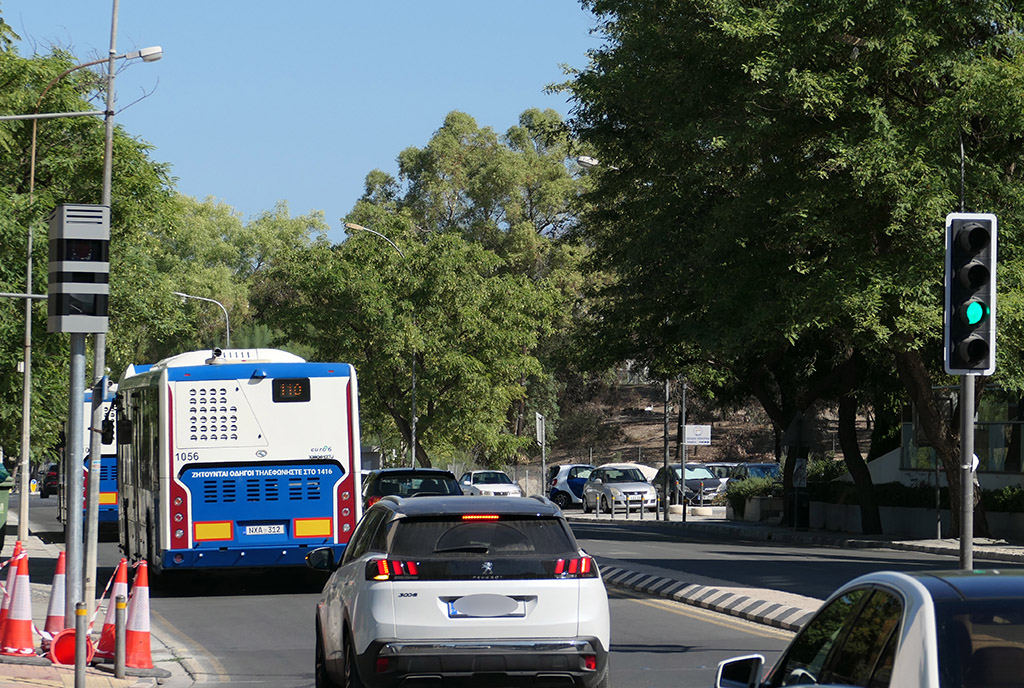Fines issued by the national automated traffic camera system, such as those for speeding or running red lights, are directed entirely to the state
“We receive nothing,” the union of Cyprus municipalities told the Cyprus Mail, outlining the long-standing structure governing traffic fine revenues in Cyprus.
The union confirmed that local councils currently do not receive any portion of the money collected through photo-enforcement systems, such as speed and red-light cameras.
“Possibly for reasons related to road safety, it was decided, perhaps hastily, that these revenues would go to the state,” the union said.
The issue, they explained, dates back years, to a period preceding the current local governance model.
In 2024, traffic fines generated nearly €20 million. Of this, €11.5 million was allocated to municipalities, while €8.5 million went to the central government. The split depends on where each offence occurred and under which law it falls.
However, fines issued by the national automated traffic camera system, such as those for speeding or running red lights, are directed entirely to the state. Municipalities do not currently receive any share.
“That 1 per cent they used to receive was also lost, a right forfeited,” the union said.
The union noted that although the state collects the money, local authorities are responsible for various road safety and traffic management measures.
“Municipalities deal with many traffic-related fines and enforcement issues. They also carry out improvements to traffic signs, road markings, signals, pedestrian crossings, one-way streets, pavements and more,” they explained.
They also clarified that the union itself does not audit local councils or their budgets.
“There are institutional bodies of the state, such as the auditor-general or even ministries, that handle such audits,” they said.
Current audits, they added, focus on whether funds are spent legally, not necessarily on whether they are spent effectively.
“That kind of audit is not foreseen,” the union stated.
Limassol received the largest share of municipal fine revenue in 2024, with €2.7 million. Larnaca followed with €1.85 million, Nicosia with €1.7 million, Paphos with €1.1 million, and Strovolos with just over €1 million.
The uneven distribution has raised questions. Earlier this year, a mayor wrote to the police chief asking why his inland municipality received significantly less than a coastal town that collected over €1.5 million.
Under current law, fines for offences such as speeding or failure to wear seatbelts go to the state. But older regulations, such as the 1984 traffic code, direct fines for infractions like not wearing a helmet go to the municipality where the violation occurred.
The law regarding camera-issued fines stipulates that 80 per cent should go to local councils, with 20 per cent to the state. However, this provision has not yet been implemented. Police said the automated system is still being updated to allow proper distribution.
Maintaining the traffic camera network costs police €6.4 million annually, a cost entirely covered by their budget. This has led to further interest in how public funds are managed.
The transport ministry said it does not have authority over disputes involving road markings captured by enforcement cameras.
“The discrepancies related to road markings captured by automated enforcement systems do not fall within the remit of the ministry of transport,” the ministry told the Sunday Mail.
“Some municipalities have raised concerns with us, but we advised them to contact the police, who handle enforcement and related procedures.”
Meanwhile, the justice ministry is advancing a reform proposal. A draft law currently under consultation would expand municipal powers to include enforcement over illegal parking, noise complaints and smoking in prohibited areas.
Justice Minister Marios Hartsiotis confirmed earlier this month that the plan includes the creation of full-time municipal police forces. He said legal advisers to municipalities had been consulted and that support for the proposed law is strong.






Click here to change your cookie preferences